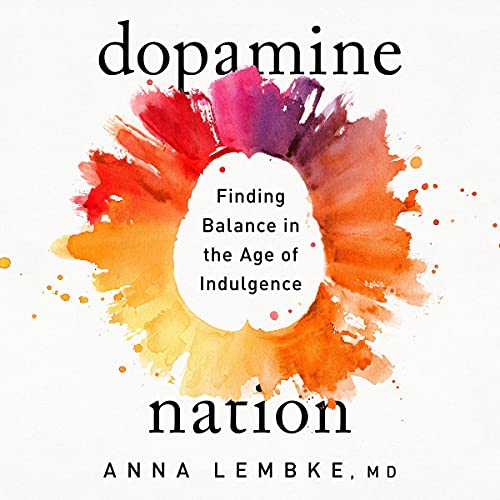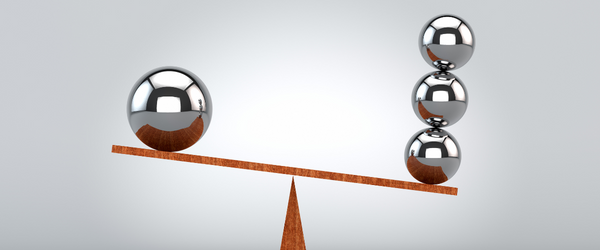Blog Post | Some Key Points from Dopamine Nation by Anna Lembke
Some Key Points from Dopamine Nation by Anna Lembke
 I have been reading a book called Dopamine Nation by Anna Lembke, and it is quite a dive into the neurochemical called Dopamine, how it works for us, and how we work against it. Anne Lembke is an American psychiatrist. If you watched the Netflix documentary called The Social Dilemma, you would have seen her interview on dopamine and how we need to get back to balance. The Social Dilemma documentary was a fascinating take on how social media and the internet are profiting from our addictive nature and the toll it is taking on our mental health and our relationships, especially with our younger folks and their developing brains.
I have been reading a book called Dopamine Nation by Anna Lembke, and it is quite a dive into the neurochemical called Dopamine, how it works for us, and how we work against it. Anne Lembke is an American psychiatrist. If you watched the Netflix documentary called The Social Dilemma, you would have seen her interview on dopamine and how we need to get back to balance. The Social Dilemma documentary was a fascinating take on how social media and the internet are profiting from our addictive nature and the toll it is taking on our mental health and our relationships, especially with our younger folks and their developing brains.
A very important finding in the field of Neuroscience is that pleasure and pain are processed in overlapping brain regions, which means that the same parts of the brain that process pleasure also process pain. They work like opposite sides of a balance. Picture the weight scales with the swivel in the middle with one side weighing pleasure and the other side weighing pain.
Now add another important rule: the brain will work very hard to restore a level of balance or what neuroscientists call homeostasis. This is a biological imperative, not just to us as humans, but to the universe as a whole. So, any deviation from this balance is actually a form of stress. In fact, a key concept for biologists is to define stress as a deviation in either direction. The adage “what goes up, must come down” makes a whole lot of sense in the context of homeostasis or balance.
So, believe it or not, a big problem in our modern times is that we have too many pleasurable substances and behaviors, which is a part of modern life that is actually stressing us out. For example, when we do something pleasurable like having a beer or playing a video game or eating chocolate, we get a little tilt to the pleasure side, and we get the release of dopamine in our brain's reward pathway.
What is dopamine? Dopamine is a neurotransmitter that helps our neurons communicate with each other. Neurotransmitters are chemical messengers regulating electrical signals in the brain and though there are many neurotransmitters, the focus is on dopamine, which is considered a very important neurotransmitter.
Dopamine is not only the neurotransmitter involved in reward processing, but may also play a bigger role in the actual motivation to get a reward rather than just the pleasure of the reward itself. This is how early man got moving on foraging for food or continuation of the species. Experiments with mice that were unable to make dopamine demonstrated that those mice will not seek out food and will starve to death even when food is placed just inches from their mouth. Only by placing the food in their mouths will they eat and live.
High dopamine substances don’t have actual dopamine in them, they just trigger the release of dopamine in our brain. Here are few stats to chew on: chocolate increases output of dopamine in the brain by 55 percent, sex by 100 percent, nicotine by 150 percent, and cocaine by 225 percent. A hit of meth increases the release of dopamine by 1000 percent. You can see why some of these substances are so highly addictive, and it is very difficult to kick the habit. The brain is very good at remembering what made it feel amazing.
You can also see how quickly dopamine supplies can be reduced substantially with some of these dopamine chasing activities. Neuroscientist Nora Volkow and colleagues have shown that heavy, prolonged consumption of high-dopamine substances eventually leads to a dopamine-deficit state. The paradox is that the pursuit of pleasure for its own sake leads to the inability to enjoy pleasure of any kind. With prolonged and repeated exposure to pleasurable stimuli, our capacity to tolerate pain decreases, and our threshold for experiencing pleasure increases. We find ourselves needing increasing amounts of the supply to get the same level of pleasure we originally experienced.
If you think that sounds like an addiction, you would be correct.
This ancient neurological machinery that is part of the “lizard” brain has remained because it was perfectly adapted for a world of scarcity and keeping us safe. Without pleasure we wouldn’t eat, drink, or reproduce. Without pain we wouldn’t protect ourselves from injury and death. Yet in these new modern times, we are endlessly chasing repeated pleasures and rewards. And of course, industries designed to keep us endlessly pursuing the next dopamine hit are helping to keep us on that path. Look no further than our smartphones, computers, televisions, video games, and social media platforms such as Facebook. Instant dopamine hits for your continued pleasure and entertainment
Think about how the high-dopamine game screws up our ability to delay gratification. Most of us prefer to get it right now rather than have to wait for it. We are losing the ability to figure stuff out or work through frustration to get our answer. The neuroscientist Samuel McClure and his colleagues examined what parts of the brain are involved in short-term gratification versus delayed rewards. They found that immediate rewards lit up the emotion and reward processing parts of the brain, while delayed rewards lit up the prefrontal cortex which is our planning and abstract thinking part of the brain.
What were some of my takeaways from Anna Lembke’s book?
First, recovery begins with abstinence. Abstinence resets the brain’s reward pathway and with it our capacity to take joy in simpler pleasures. A dopamine detox is needed just like we expect drug addicts to do in a recovery situation.
Second, the relentless pursuit of pleasure (and avoidance of pain) eventually leads to more pain. As humans we were not built for this pursuit. We’re living in a world in which we have extensive access to highly potent drugs and reinforcing behaviors which don’t just release a little bit of dopamine, but a whole huge dose. And we are all surrounded by them all the time, every day.
That means over time we are bombarding our dopamine reward pathway with way more dopamine than our primitive brains can handle. And remember, a deviation from homeostasis in the body equates to stress on the system. We are a highly stressed out and anxious group despite our access to so many pleasurable pursuits.
As Dr. Lembke suggested, stop running from whatever you’re trying to escape, and instead turn and face whatever it is and deal with it head on just as we as a species were so wonderfully designed to do. I thought this was a powerful message and was certainly a wake up call to more closely monitor my own balance and awareness of where I spend my precious supply of dopamine.

Katherine Jahnke
ADHD Coach | Center For Living Well with ADHD, LLC

